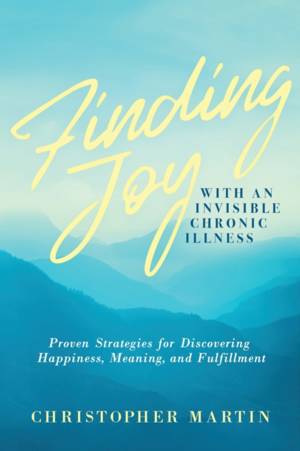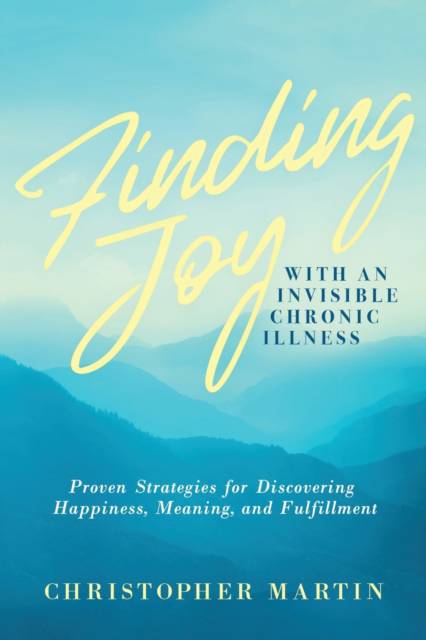
- Retrait gratuit dans votre magasin Club
- 7.000.000 titres dans notre catalogue
- Payer en toute sécurité
- Toujours un magasin près de chez vous
- Retrait gratuit dans votre magasin Club
- 7.000.0000 titres dans notre catalogue
- Payer en toute sécurité
- Toujours un magasin près de chez vous
Finding Joy with an Invisible Chronic Illness
Proven Strategies for Discovering Happiness, Meaning, and Fulfillment
Christopher MartinDescription
"Finding Joy is a vital guide on how to best manage and navigate life with a chronic illness."-James Nestor, New York Times bestselling author of Breath: The New Science of a Lost Art
"Finding Joy provides a comprehensive, evidence-based roadmap for not only coping with chronic illness, but personally optimizing self-growth and resiliency from the experience." -Joanne Joseph, PhD, professor of psychology and interim dean of the College of Health Sciences, SUNY Polytechnic Institute, and author of The Resilient Child: Preparing Today's Youth for Tomorrow's World
- How can you experience those good thoughts and feelings, enjoy life to its fullest, and de-stress when faced with relentless physical suffering?
- How can you enhance your relationships, find support, respond to the naysayers, and possibly even help them understand you and your illness?
- When seeking medical care, how can you get the answers you deserve, and access and maintain quality healthcare?
These important questions deserve thoughtful, informed answers. School psychologist, patient, and award-winning author Chris Martin offers just that.
Finding Joy offers an easy to understand, concise but thorough explanation of countless tips for living well with chronic illness. Finding Joy is divided into three sections: the emotional aspects, the relationship impacts, and access to quality healthcare.
Finding Joy is an A-to-Z guide that critiques the literature and empowers the reader with:
- Invaluable positive psychology techniques. These range from self-compassion, positive reappraisal, positive self-talk, and pacing to positive thoughts, emotions, and behaviors, such as optimism, humor, and volunteer work.
- Relaxing stress-reduction methods. These include tools such as mindfulness, breathing exercises, simplification, and (therapeutic) journaling.
- Proven therapies. Examples include cognitive behavior therapy (CBT), dialectical behavior therapy (DBT), and acceptance and commitment therapy (ACT)
- Effective communication strategies and their impact on relationships with others and even the ability to access quality healthcare.
- Numerous tips to both access and optimize your experience with high quality healthcare.
- Important considerations for the loved ones of the chronically ill, so they can know how to best support their loved one and take care of themselves in the process.
Spécifications
Parties prenantes
- Auteur(s) :
- Editeur:
Contenu
- Nombre de pages :
- 202
- Langue:
- Anglais
Caractéristiques
- EAN:
- 9780990826958
- Date de parution :
- 15-11-21
- Format:
- Livre broché
- Format numérique:
- Trade paperback (VS)
- Dimensions :
- 152 mm x 229 mm
- Poids :
- 276 g







